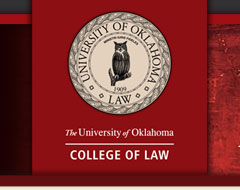Abstract
I don't know my own culture, . . . I am going to need your help in understanding . . . . Teach me, teach my children. These are the words of a forty-three-year-old Navajo woman on her first visit back to the Navajo Nation since her birth. Stolen as an infant, along with her twin brother, and adopted out on the black market, she was finally reunited with her family and community. Her journey home comes at a time when Native American nations are fighting proposed legislation and court-made rules that seek to limit the reach of the Indian Child Welfare Act of 1978 (ICWA). Congress passed the ICWA in response to the massive displacement of Native American children to non-Indian adoptive homes, foster care, and educational institutions by federal, state and private child welfare authorities. While there were a myriad of interrelated factors that led up to this Indian child welfare crisis, at its core was the failure of mainstream society to recognize and respect the cultural values and social norms of Native American nations. The assimilative attitudes that Native American children were better off growing up in a non-Indian environment did not surface overnight. Rather it percolated from centuries of U.S. sanctioned policies - from boarding schools, to placing out programs, to Indian adoption projects - aimed at the erasure of Native American cultures. The passage of the ICWA marked a reversal in federal Indian policy toward one of self-determination for Native American nations. However, judicially created exceptions to the ICWA, such as the Existing Indian Family doctrine, threaten to undermine this landmark legislation and return us to the policies of the past. In order to demonstrate how these judicially created exceptions perpetuate past assimilative attitudes, this article begins with a historical discussion of the treatment of American Indian children in this country. Within this larger historical context, the article provides a critique of the Existing Indian Family Doctrine and explores some current ideological debates that may be underlying recent challenges to the ICWA.
Recommended Citation
Lorie M. Graham,
"The Past Never Vanishes": A Contextual Critique of the Existing Indian Family Doctrine,
23
Am. Indian L. Rev.
1
(1998),
https://digitalcommons.law.ou.edu/ailr/vol23/iss1/2
